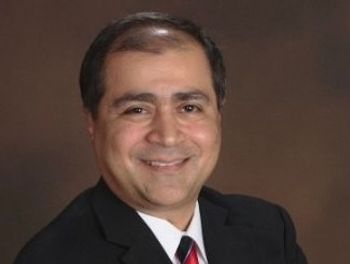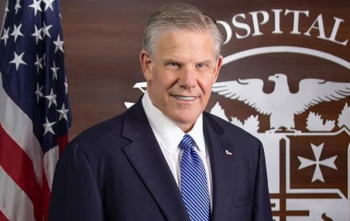
Doctors dismayed by payment cuts in federal spending plan: ‘Huge congressional failure’
Lawmakers approved a stopgap bill to avoid a government shutdown, but Congress didn’t block Medicare payment cuts to doctors taking effect in 2025. The package doesn’t address prior authorization reform.
Congress managed to avoid a government shutdown, but lawmakers failed to address some key priorities sought by trade groups representing doctors and healthcare organizations.
Lawmakers didn’t include any language blocking
Groups representing doctors hoped that Congress would prevent, or at least mitigate, the planned 2.8% cut in payments to physicians. After objections from President-elect Donald Trump, lawmakers scrapped an earlier spending plan, which would have averted most of the reductions. In the press to reach a final deal before a government shutdown, lawmakers approved a package that left the cuts in place.
Anders Gilberg, senior vice president of government affairs of the Medical Group Management Association, said the spending plan “represents a huge congressional failure to the detriment of the nation's Medicare patients and their physicians.”
“The previously agreed-upon CR, while not perfect, would have critically averted most of the 2.83% cut to physician reimbursement in Medicare beginning January 1,” Gilberg said in a statement. “Now physician practices head into the new year facing uncertainty and financial shortfalls that not only negatively impact the viability of their Medicare business, but their commercial contracts tied to Medicare rates, as well as Medicaid reimbursement in states that use Medicare as a benchmark.”
The American Medical Association urged Congress to block the cuts in Medicare payments.
The AMA has denounced cuts in Medicare payments to doctors over the years, even as physicians face higher costs in their practices. Over the past two decades, Medicare physician payments have dropped 33% when factoring in the higher business costs for doctors. Doctors have argued continued cuts are prompting some physicians to stop accepting Medicare patients or even considering closing their practices.
Bruce A. Scott, president of the AMA, said the spending package “utterly fails to address declining reimbursement rates for Medicare, pushing our health system down a path that will have predictable and deleterious results.”
“For the fifth consecutive year, Congress has adjourned and allowed Medicare cuts,” Scott said in a statement. “What will be the result? Patients struggling to access health care. Physicians closing or selling their private practices while others opt to leave the profession.”
Physicians and healthcare groups would have fared better under the original spending plan that lawmakers had assembled, before Trump signaled his disapproval and the bill was scrapped. The spending plan would have imposed a 0.3% cut in Medicare payments to doctors. Physicians didn’t love that they were still looking at a cut, but the final plan approved last week includes the full 2.8% reduction in payments for 2025.
Physician groups are going to continue to press lawmakers to block that cut in the new year. They also say they will press lawmakers for a more permanent solution to address Medicare payments to doctors, including factoring in inflationary costs.
“Permanent reform to the Medicare payment system is needed to sustainably support medical groups and their ability to provide timely access to Medicare patients,” Gilberg said in a statement.
The AMA is also pushing for changes in the way Medicare pays physicians.
“With another cut almost certain to take effect, Congress must enact meaningful long-term reforms,” Scott said.
Healthcare groups had also hoped Congress would tackle the issue of
With prior authorization, providers must secure approval from insurers on certain treatment plans. Insurers say the process is necessary to contain costs and avoid unnecessary treatments. Doctors say too many plans are being delayed or rejected, which
Hospitals and doctors had pushed Congress to pass legislation that would
Scott bemoaned the lack of action on prior authorization reform.
“Congress also inexplicably missed a golden opportunity to improve patient care by refusing to include prior authorization reform in the final package – a reform with vast bipartisan support in both chambers,” Scott said in a statement. “Leaving it on the cutting room floor is an unnecessary gift to the insurance industry at the expense of our patients.”
Hospitals have also said
Lawmakers have introduced legislation to streamline prior authorization in the last two sessions, but despite some strong support, they haven’t been able to push measures through Congress. With the legislative session ending, healthcare advocates will likely try again when the new Congress is seated.







































